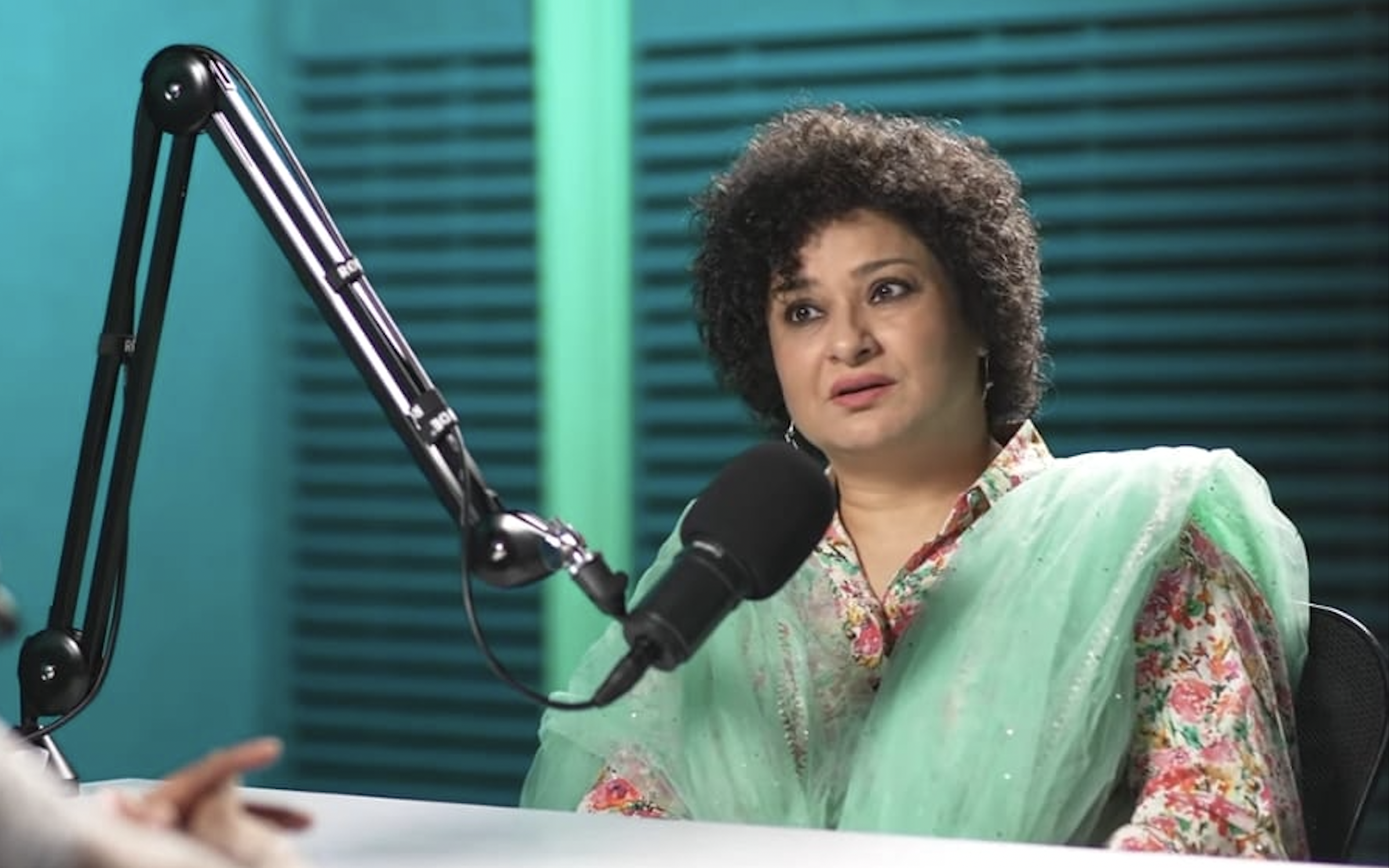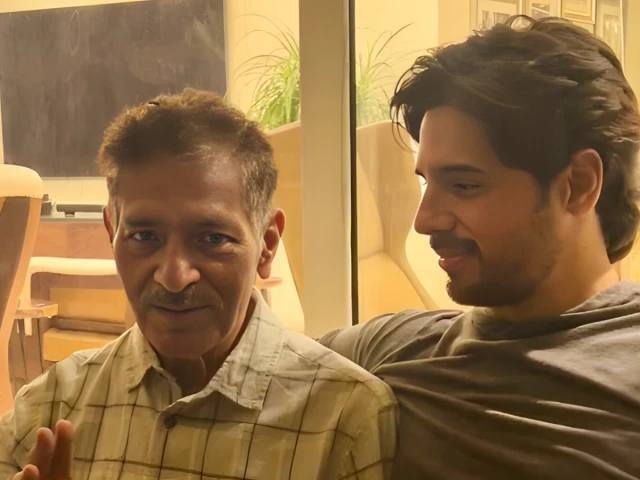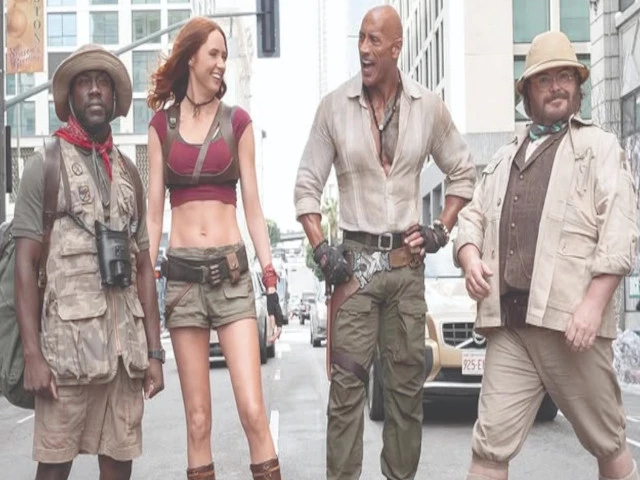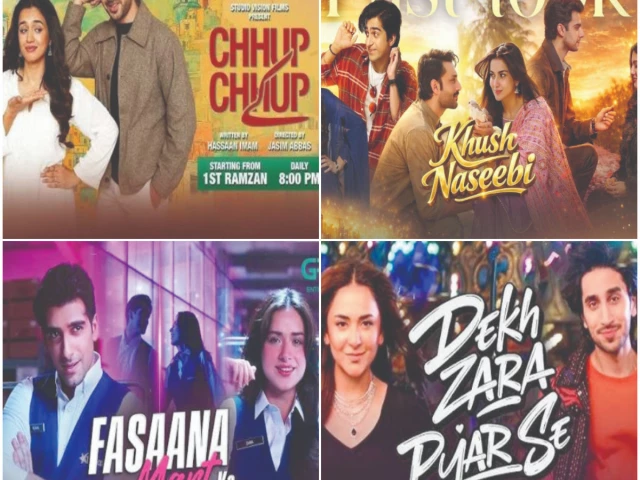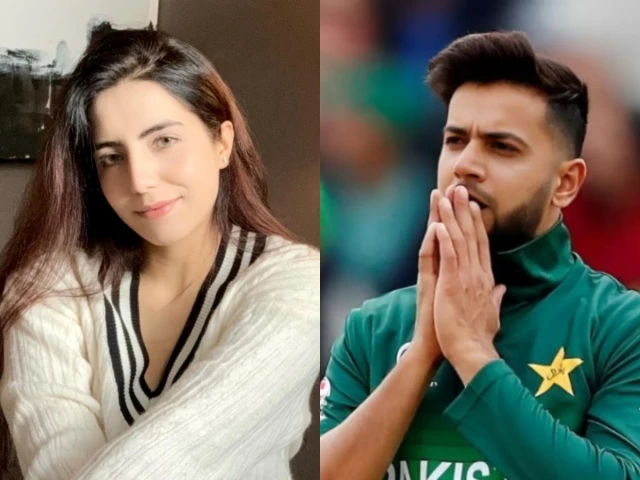KARACHI:
Veteran television and theatre actor Sania Saeed recently appeared on The Rafay Mahmood Podcast and spoke about a myriad of topics including the cold-blooded murder of the 17-year-old influencer Sana Yousaf.
“Everyday, I wake up with the news of women dying,” said a visibly emotional Saeed. “There’s fatigue even in our compassion. How much more can we take?”
“This was just one girl, and even one is too much. How can we, as a society, permit that even one child is subjected to such assault and violence?” she added.
Rationalising injustice
The host Mahmood pinpointed Saeed’s statement about fatigue and the society mislabelling it as resilience. Asked if she sees any such resilience in the society, Saeed noted how it’s our way of rationalising and moving on with our lives.
“The logical part of your brain keeps saying that you have no other choice.” Saeed seemed to be holding back tears at this point, clearly affected by the tragedy. “You carry a heavy heart, but to move on, to keep working, you rationalise it. You try to understand why and how it happened, where this all came from.”
Saeed spoke about how the influencer was not involved in any controversies either; she “was an innocent kid posting cute videos about restaurants and all.” She was “following traditions, refusing unwanted advances exactly like we want our children to do. Isn’t that what we teach our girls?”
The Joyland actor said this is the point she wants to present to those who criticise and oppose women’s rights, Aurat March and slogans like ‘Mera Jism, Meri Marzi’. “When people respond aggressively, accuse and abuse without thinking, just to defend their privilege, this is what we are talking about.”
At this point, the host mentioned the state of our society is such that when journalist Fasi Zaka wrote a prayer for the deceased, users abused him in the comments and said that she deserved it. He brought up tackling such extreme mentality prevalent in the society where you can’t even say a prayer for a murder victim.
Saeed questioned this instinctive hatred for women that causes such extreme reactions. “This girl could have been a religious person posting religious videos and it wouldn’t have been any different. If there’s any small thing, anything that you don’t like about a woman, you get this incredibly extreme response. Where does this stem from?”
Cry for help
The artist shared her theory about this deep aggression. “I feel like this relates to the way we have raised our men. We have raised weak men who are not equipped to understand anything and are not emotionally intelligent. This may seem like an anti-women attitude, but it’s a cry for help for our boys too. How can a person be so enraged in an instant?”
She continued, “We teach our daughters to rely on their brothers, fathers, husbands. They will protect you. But if they are so volatile, how can you rely on them? If they can’t make right decisions in their lives and lose control so fast, how can I put my life in their hands?”
Mahmood then quotes Ali Gul Pir saying that it’s a constant struggle for everyone, especially men, to not become a product of their circumstance. Saeed agreed and emphasised that it was a joint struggle.
“This cannot be separate. If we don’t play up our strengths, there will be issues like we are seeing today. We have undermined women so much. Everyday, we hear such news. Every woman you meet has a story. And class is not even a factor in it. But at the end of the day, it’s a joint struggle. If we don’t fight it together, it won’t work.”
Emotional repression
The host expanded upon the idea and cited Swiss psychologist Carl Jung’s work saying that most of the violence that exists in the world is because man is unable to tell his own story. Jung’s theory about unresolved inner conflicts leading to external issues pointed the conversation towards the mental and emotional repression that leads to this violence.
Even Saeed added to the point about how this repression leads you to oppress others. “How can you think if I give them some space, they will take over mine as well? How incapable do you think yourself to be?”
Later in the conversation, she spoke about the hierarchy of oppression and abuse, citing an example of kids committing cruel acts against animals. “You have to imagine what must have happened with those kids if they are so comfortable abusing animals? It’s a hierarchy. Class abuses gender. Gender abuses the supposedly weaker gender. Then they continue it based on age and so on. At this point, it doesn’t matter if someone is weak or not. What is this psyche of abusing instead of helping the one who you perceive as weak?”
She pointed out how they take pleasure in abusing someone or even witnessing it. “I want to know what they went through to become such psychopaths? We have created them too. Go look at the abused children in the hospitals, look at how teachers strike kids in classrooms, you will see the ground realities [of this inherent violence].”
Throughout the podcast, the conversation steered toward multiple topics including women’s rights, justice and Saeed’s acclaimed work in film and the drama and the lessons she’s learned in her life and career.
Have something to add to the story? Share it in the comments below.


